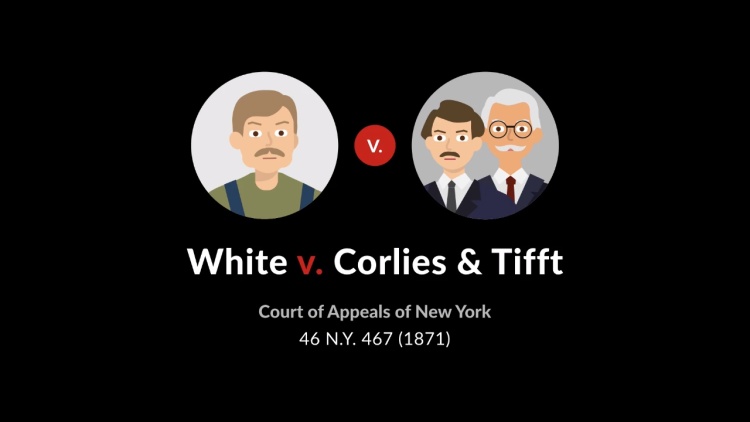White v. Corlies & Tifft
Court of Appeals of New York
46 N.Y. 467 (1871)

- Written by Christine Hilgeman, JD
Facts
Based upon provided specifications and a request for an estimate, White (plaintiff), a builder, submitted his estimate to Corlies & Tifft (Corlies) (defendant) for the requested work on their offices at 57 Broadway. After making a change to the specifications, Corlies submitted a copy to White, which he assented to by signing and returning to Corlies. The next day, September 29, Corlies sent White a note stating, “Upon an agreement to finish the fitting up of offices 57 Broadway in two weeks from date, you can begin at once.” White immediately purchased supplies and began to prepare those materials for the work. The next day, Corlies sent another note retracting the previous note. White sued Corlies for breach of contract. At trial, the lower court instructed the jury that it must determine whether White needed to give notice of assent before commencing the work. The trial judge stated in his instruction to the jury that he did not believe that White needed to give notice of assent, and verdict was entered for White. Corlies appealed the trial court’s jury instruction.
Rule of Law
Issue
Holding and Reasoning (Folger, J.)
What to do next…
Here's why 908,000 law students have relied on our case briefs:
- Written by law professors and practitioners, not other law students. 47,100 briefs, keyed to 997 casebooks. Top-notch customer support.
- The right amount of information, includes the facts, issues, rule of law, holding and reasoning, and any concurrences and dissents.
- Access in your classes, works on your mobile and tablet. Massive library of related video lessons and high quality multiple-choice questions.
- Easy to use, uniform format for every case brief. Written in plain English, not in legalese. Our briefs summarize and simplify; they don’t just repeat the court’s language.





